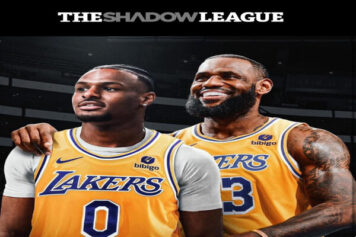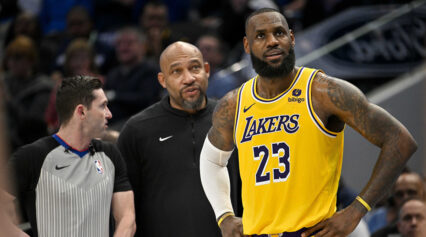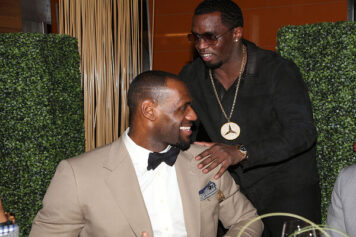There’s one thing hip-hop can agree on: Ronald Reagan sucks.
Right after mannequin rappers and the boys in blue, Ronald Reagan and his formaldehyde-licked haircut would sit comfortably at the top of hip-hop’s list of mortal enemies. Even after Ice-T pulled the trigger on him in ’’87, and Non-Phixion poured lead into The Gipper in ’98, Reagan’s death was being celebrated a whole 23 years after the end of his second term. Thanks to Killer Mike, of course.
It can be argued that hip-hop’s demonization of POTUS No.40 has been as systematic as the Whac-A-Mole campaigns Reagan unleashed on the impoverished communities of the 1980s. (Interestingly enough, without Reagan, hip-hop might not have risen from the ashes of urban neglect to become the powerhouse it is today, even if that rise started a full 10 years before he took office.)
And now, Ronald Wilson Reagan has an heir: Marco Antonio Rubio. The guy some have called the ‘Hispanic Reagan.’
For those of you who haven’t heard, Marco Rubio is a fan of hip-hop. During an interview with GQ magazine, the Florida Senator picked sides in the Biggie-Tupac debate, crushed on Eminem for being the only emcee to offer any “sort of depth,” and, like an overprotective mother, made hip-hop fans question the friends hip-hop has been making over the years (“You’ve been running the streets with the Republicans’ golden boy!?”). Granted, it says something about hip-hop’s power to transcend barriers that Obama has no qualms about brushing off—opposing party rhetoric with a little Hova style—or that Rubio knows who Afrika Bambaataa is, but should people praise politicians for a little hip-hop sentimentality when they’re failing one out of every seven Americans ?
The poor and disenfranchised today are no better off than they were when Lyndon B. thought he needed to start beef with poverty. But the Republican Party is two steps away from pouring celebratory Gatorade on Rubio for being in tune “ with the lives of ordinary people.”
When asked about the lessons he might have taken from listening to Tupac, Rubio centered on the political and said, “I don’t listen to music for the politics of it.” Put on your stank face: As a fan of hip-hop, namely Public Enemy, Mr. Rubio doesn’t listen to music for the politics???
One of the central reasons Tupac remains one of the genre’s most revered figures is because he had a matchless ability to rap about the political through a syphon of the everyday. For some, he might not be on Chuck D’s or KRS-One’s level, but Shakur was raised by Black Panthers, and remained politically-charged even when it seemed that he wasn’t. Rubio saying he doesn’t listen to Tupac for the politics, is like him saying he doesn’t listen to hip-hop for the lyrics.
Which brings up the next point. As a fan of the genre, Rubio did it a disservice by saying that Eminem is the only rapper who speaks any sort of depth. Sure, Mr. Mathers is a talented lyricist, and approached the mic with a frenetic honesty seldom seen in the game, but Rubio is accusing the genre he claims to love of being a shallow shell wherever Eminem doesn’t operate. If Rubio was trying to gain supporters who identify as hip-hop heads, he’s just brought on himself a level of disdain only Eminem could muster up.
Rubio hasn’t been a person who has been completely honest with his backstory—he once fibbed about his parent’s alleged exile from a Castro-oppressed Cuba—so it’s hard to know if he was in fact a hip-hop listener growing up. People in our media-obsessed world tend to over politicize everything, and it’s very possible that Rubio grew up on rap, did a poor job of identifying with the throughlines of its politics and culture, and now is using his “ties” to pop culture to win over a demographic his party alienated a long time ago. But a quick revision of Rubio’s statements suggest he only has a Wikipedia knowledge of hip-hop, and could have easily discovered his three favorite rap songs—“ Straight Outta Compton” by N.W.A., “Killuminati” by Tupac, and Eminem’s “Lose Yourself”—during a lonely night listening to Pandora.
It should be noted that, if Rubio was, in fact, pandering to the hip-hop or youth community, he might as well have mentioned Kendrick Lamar, and not an emcee who was murdered in 1996, as a point of cultural relevancy. But that’s the thing, Rubio’s strain of Republicans don’t seem to know how to operate on a plane of cultural relevancy.
Americans of all walks of life, and varying fondness for hip-hop, understand their tactics, and are bothered by the playbook Rubio’s team ascribes to. If Rubio had some sort of agenda in sharing his love for Big Sean, Kanye West, Flo Rida, The Sugar Hill Gang, and Will.i.am—namely to recruit more minority party members—minorities, it seems, ain’t having it.
More importantly—and it’s something everyone else, including The New York Times’ Maureen Dowd, missed—if this was a PR move by Rubio, he was essentially trying to racialize a genre that has a storied history of inclusion, and that has since become a global community.
If there’s any poetic justice in the world, Killer Mike will one day give Marco Rubio the Ronald Wilson Reagan treatment, and drop a joint called “Hispanic Reagan.”



